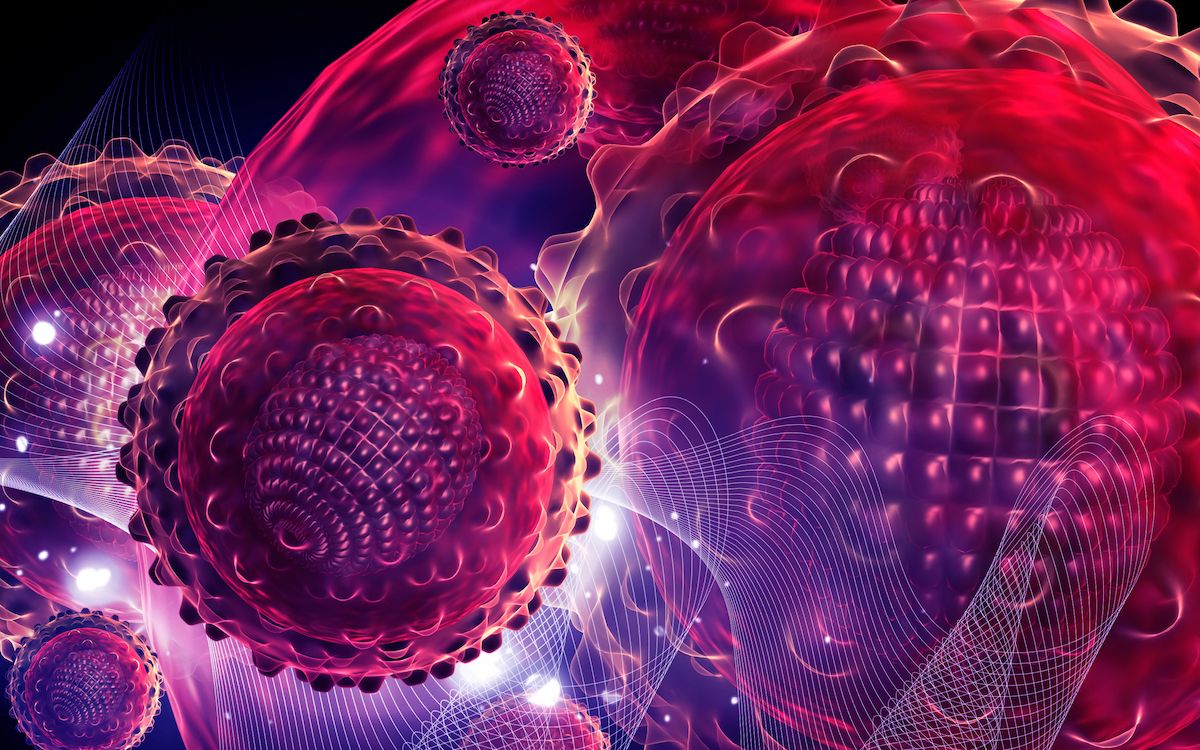Uproleselan Combo Does Not Improve EFS Vs Chemo in Newly Diagnosed AML
Investigators will present topline data from the phase 2/3 study of uproleselan/chemotherapy at a future medical meeting.
Investigators of the phase 2/3 study (NCT03701308) aimed to evaluate the efficacy of daunorubicin and cytarabine with or without uproleselan among older patients with AML who are receiving intensive induction chemotherapy.

Combining uproleselan with 7+3 chemotherapy did not significantly improve event-free survival (EFS) vs chemotherapy alone among patients 60 years and older who have newly diagnosed acute myeloid leukemia (AML) and eligibility to undergo intensive chemotherapy, according to a press release on findings from a phase 2/3 study (NCT03701308).1
Phase 2 analysis findings showed that the uproleselan combination did not reach the trial’s primary end point of EFS. Investigators from the National Cancer Institute (NCI) and the Alliance for Clinical Trials in Oncology are working to further evaluate the trial findings, which will include an assessment of subgroup analysis data to see if there are any efficacy signals that may warrant further study. Additionally, topline data from the phase 2/3 trial will be shared at a future medical meeting.
Investigators of the phase 2/3 study aimed to evaluate the efficacy of daunorubicin and cytarabine with or without uproleselan among older patients with AML who are receiving intensive induction chemotherapy.2
In the induction phase, patients assigned to the experimental arm received uproleselan intravenously once daily on day 1 and every 12 hours on days 2 to 10. Patients also received daunorubicin intravenously on days 2 to 4 plus cytarabine via continuous intravenous infusion over 168 hours on days 2 to 8.
During the consolidation phase of treatment, patients who experienced a complete response (CR) or CR with incomplete hematologic recovery were eligible to receive uproleselan intravenously once daily on day 1 and every 12 hours on days 2 to 8 plus cytarabine intravenously over 3 hours on days 2 to 6. If patients did not experience progressive disease or unacceptable toxicity, this treatment course was repeated every 28 days for a maximum of 3 cycles.
The trial’s primary end points were EFS in the phase 2 portion and overall survival (OS) in the phase 3 portion. Secondary end points included disease-free survival, CR rate, overall response rate, and incidence of adverse effects.
Patients 60 years and older with a diagnosis of AML per 2017 World Health Organization criteria were eligible for enrollment on the trial. Other requirements for study entry included having no activating FLT3 mutations; no evidence of central nervous system involvement; and no prior chemotherapy for myelodysplastic syndromes, myeloproliferative neoplasms, or AML.
Investigators previously announced comprehensive results from a phase 3 trial (NCT03616470) evaluating treatment with uproleselan/chemotherapy for patients with relapsed/refractory AML in June 2024.3
Among 388 evaluable patients in the intent-to-treat population, the median OS was 13.0 months with uproleselan/chemotherapy vs 12.3 months with placebo/chemotherapy (HR, 0.89; 95% CI, 0.69-1.15); the difference in these outcomes was not statistically significant. For patients with primary refractory disease, the median OS was 31.2 months and 10.1 months in each respective arm (HR, 0.58; 95% CI, 0.37-0.91).
Among patients with an early relapse, the median OS in the uproleselan combination arm was 3.7 months vs 6.4 months in the placebo arm (HR, 1.50; 95% CI, 0.69-3.27). For those with a late relapse, the median OS was 15.4 months vs 18.2 months in each respective treatment arm (HR, 1.10; 95% CI, 0.77-1.57).
“In the primary refractory setting, uproleselan’s improvement of [median] OS and greater duration of remission were particularly compelling, as there is a significant unmet need for new treatment options in this setting that can extend and improve the lives of patients,” principal trial investigator Daniel DeAngelo, MD, PhD, professor of Medicine at Harvard Medical School and Chief in the Division of Leukemia at Dana-Farber Cancer Institute, said in a press release on these phase 3 findings.3 “These results demonstrate uproleselan has the potential to address this unmet need in primary refractory AML.”
References
- GlycoMimetics announces National Cancer Institute phase 2/3 study of uproleselan did not meet primary endpoint. News release. October 29, 2024. Accessed October 30, 2024. https://tinyurl.com/2sjs7dp6
- Daunorubicin and cytarabine with or without uproleselan in treating older adult patients with acute myeloid leukemia receiving intensive induction chemotherapy. ClinicalTrials.gov. Updated October 9, 2024. Accessed October 30, 2024. https://tinyurl.com/5fb3h87w
- GlycoMimetics announces comprehensive results from pivotal phase 3 study of uproleselan in relapsed/refractory (R/R) acute myeloid leukemia (AML). News release. GlycoMimetics, Inc. June 4, 2024. Accessed October 30, 2024. https://tinyurl.com/ypr6by3p